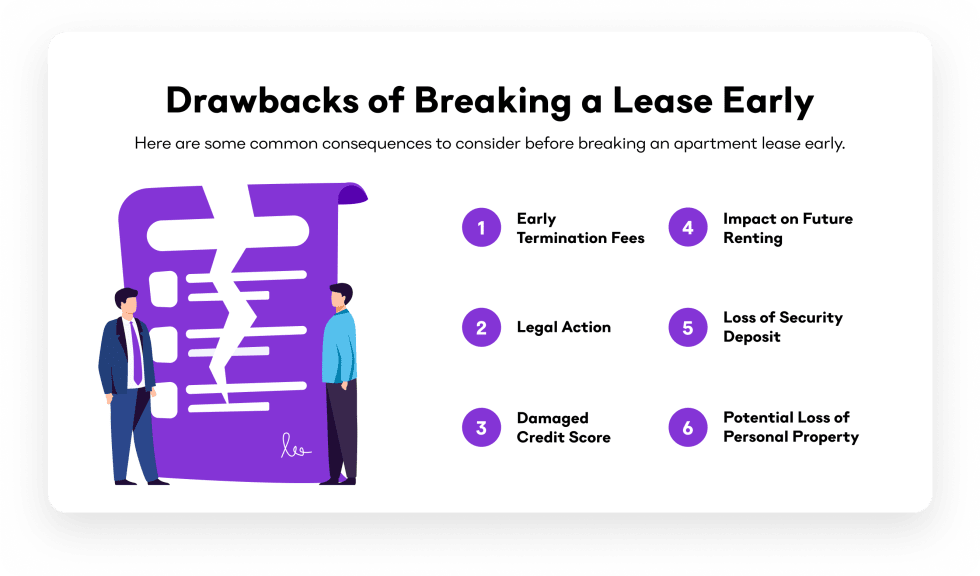What Happens if You Break a Lease? Understanding Your Options
What Happens if You Break a Lease? Understanding Your Options
Blog Article
The hire market is obviously shifting, with more visitors than actually rethinking their living situations. Searches about “how to get out of a 1 year lease early” soared by over 70 percent in the last year alone, reflecting a clear trend. Whether it is a job change, unexpected financial challenges, or a connection shift, your decision to break a lease is not anyone to take lightly. Understanding the key facets at perform will save you from unexpected economic and legal headaches.

Early Terminations on the Rise
A current analysis across key US cities unveiled that approximately 18 percent of tenants consider breaking their lease before the total term ends. This mirrors broader changes in employment, life style, and also mental health priorities. Knowledge also shows that young renters, particularly those aged 18 to 34, are the absolute most probably to produce a shift mid-lease. If you are in that group, you are definitely not alone.
Economic Penalties Top the List
The absolute most quick problem renters have could be the financial impact. Survey effects show that 65 percent of landlords demand some type of early firing charge, which can range from the cost of a single month's book to the full total book left on your own agreement. About 28 percent of visitors interviewed claimed they overlooked these prices, leading to surprise expenses that collection straight back their budgets.
Hidden Costs and Other Expenses
It's not merely about termination fees. Some landlords also withhold protection remains or cost for re-listing the property. On average, visitors may lose yet another 20 per cent of the deposit if the house requires washing or fixes following an earlier exit. Understanding these figures can help with decision making before giving notice.
Legal and Credit Effects
Breaking a lease may follow you in more methods than one. Almost 22 % of visitors who broke their leases without settling described a reduction for their credit report. Landlords may deliver your unpaid balances to choices, which makes it tougher to rent elsewhere or protected loans. Additionally, being sued for unpaid rent is a actual, if less popular, risk.
Appropriate Causes and Negotiations
Not absolutely all lease breaks are treated equally. Probably the most typically accepted reasons contain wellness and protection violations, military deployment, or substantial property damage from functions like normal disasters. More than half of tenants polled successfully negotiated making use of their landlords for a diminished cost or simpler phrases once they provided paperwork for such reasons.
The Interaction Element
Information suggests that visitors who conveyed early and overtly making use of their landlords were able to save yourself an average of 35 % on penalty costs. Setting expectations, discussing paperwork, and arranging for an upgraded tenant may all lessen the fallout. The earlier you begin the discussion, the better your chances to reduce fees and protect your credit score.
What the Trends Tell Us
Lease-breaking is clearly trending upward. However, the danger of unexpected expenses and legal trouble remains high for people who don't program ahead. Reviewing your lease agreement, understanding the fine printing, and seeking legal counsel if required are wise first steps.
Considering lease-breaking data will give visitors a clearer photograph of what's at stake, making it simpler to weigh their alternatives and prevent economic missteps. Being prepared and hands-on turns what could be a key setback in to a well-managed transition. Report this page